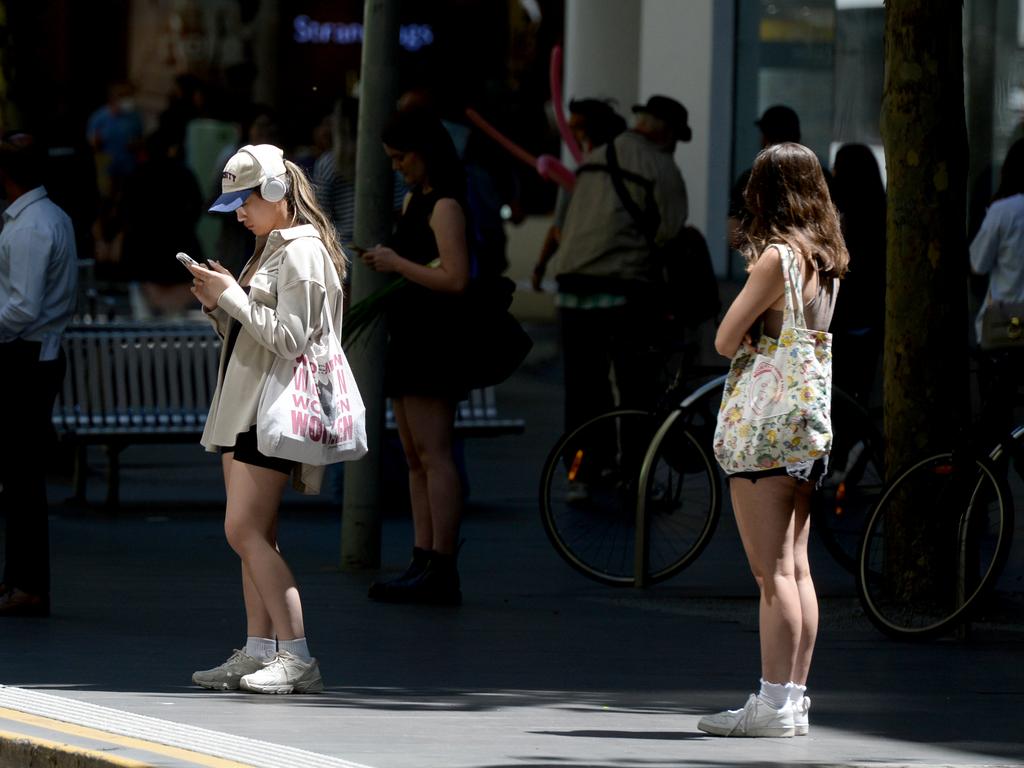‘Will I get a refund?’: PM’s $3 billion HECS debt forgiveness sparks backlash
Anthony Albanese’s plan to wipe $3 billion in HECS debt for three million Aussies has left many asking a very obvious question.

Anthony Albanese’s plan to wipe $3 billion in HECS-HELP student debt for three million Aussies has left many asking the same question.
“Can I get a refund for the HECS I’ve already paid in full?” one user wrote on X, echoing hundreds of similar comments across social media.
Another wrote, “I paid my HECS debt off myself, early. Could you please give relief from my current debt situation or at the very least refund the monies paid — with interest of course.”
A third said, “Can I get a partial refund on the HECS that I already struggled to pay off in full? Or are you going to double-whammy me by not only having to pay my own student debt but now take my taxes to pay off others’ student debts? Presumably to buy votes.”
But many former students have welcomed the much-needed financial relief.
“Just wipe all student HECS debts,” one woman wrote. “We aren’t doing these degrees for entertainment. Free education for everyone isn’t that radical, we’ve had it before.”
Another said, “The people bitching about backdating indexation on HECS debts because they were privileged enough to already pay theirs off … People who have means don’t want anything to change as the system already works in their favour.”
The government on Monday partially answered the refund question, confirming that those who paid off their HECS in a bid to avoid a repeat of last year would be eligible for a tax credit instead.
“Those that paid off their outstanding HELP loan between June 1, 2023 and the time the legislation is passed will be eligible for a tax credit,” a spokesman confirmed to NCA NewsWire.
Instead of the relief being applied to an outstanding HECS loan balance, it will be applied at tax time.
The Higher Education Contribution Scheme (HECS) was absorbed into the Higher Education Loan Program (HELP) in 2005 and is now officially called HECS-HELP, but the scheme is still commonly referred to as HECS.
The Prime Minister on Sunday announced the cost-of-living budget measure for cash-strapped millennials and millions of other Australians, in a bid to address the mounting weight of student debt and rising rental costs.
The plan does not wipe out HECS debts entirely, but rather backdates a change to how interest on student loans is calculated to last year, meaning many people will get thousands of dollars refunded.
Australians with a HECS debt can find out how much the change is estimated to benefit them using the HELP Indexation Credit Estimator.
The government will backdate this relief to all HECS-HELP, VET Student Loan, Australian Apprenticeship Support Loan and other student support loan accounts that existed on June 1, 2023.
An individual with an average HECS debt of $26,500 will see around $1200 wiped from their outstanding loans this year, pending the passage of legislation.
But students with huge debts of $100,000 who have studied expensive degrees including medicine, law or even studied multiple degrees could have $5000 wiped.
“This will wipe out around $3 billion in student debt from more than three million Australians,” Education Minister Jason Clare said.
“We are doing this, and going further. We will backdate this reform to last year. This will wipe out what happened last year and make sure it never happens again.”

‘Band-Aids on bullet wounds’
Opposition education spokeswoman Sarah Henderson said the plan showed the Albanese government could not get spending under control, fuelling high inflation.
“Today’s announcement is all trickery and deceit and doesn’t fix Labor’s student debt trap that has hit three million Australians,” Senator Henderson said in a statement on Sunday.
“Under Labor, student debts will still increase by a crippling 11.1 per cent … driving up the average loan by $2800. A HECS-HELP indexation rate of 4 per cent this year would be the highest in 23 years. Under the Coalition’s strong economic management, low inflation meant indexation averaged just 1.7 per cent per annum.
“Whether it’s student debt, housing or paying the bills, young Australians continue to suffer acute cost-of-living pain under this incompetent Labor government.”
Shadow Treasurer Angus Taylor said student debt was only skyrocketing because of homegrown inflation.
“Australians are paying the price for Labor’s economic mismanagement,” Mr Taylor said in a statement.
“The best way to address growing HECS debts is to fight Labor’s homegrown inflation at its source by reining in spending and strong budget management. Instead, Labor has let spending and inflation run out of control to the point that inflation is now stubborn, sticky, and homegrown.
“Today’s announcement is a glaring admission from Labor that real wages have been going backwards under their government.
“The policy announced will provide marginal relief to Australians struggling to pay down their debts with the rising cost of living, with experts expecting that over the next year indexation will still exceed 4 per cent.
“With the last budget forecasting WPI to exceed CPI from 2023-24, this change will only have an impact if Labor are expecting further collapses in real wages like Australians have experienced since the election.
“There remain a number of questions Labor must clarify, including what the backdated proposal will mean for students who paid down their debts following the 7.1 per cent indexation.
“Labor’s response to inflation continues to put Band-Aids on bullet wounds. To provide cost-of-living relief for all Australians, Labor must deliver a budget that puts downward pressure on its homegrown inflation.”

‘Debt spiral’
The budget measure follows reports of the financial plight of graduate journalist Caitlin Cassidy, who revealed she had run up a six-figure HECS debt after studying for a Bachelor of Arts but then staying on at university for years to get a Masters in Global Communication and a Graduate Diploma in Journalism — three degrees in total.
“Just did a back of the envelope on my student debt. I graduated with a debt of $99,700 and have paid back around $12,000,” she wrote on X.
However, with indexation, her debt is now even bigger, sitting at $106,000. The Guardian education reporter said this included an increase of more than $7200 as a result of last year’s record indexation.
“I paid back $3422, so my debt is $106,000 now, not $109,500, but if indexation is 4 per cent this year … it’ll go up again by $4240, to $110,000 — even higher than last year. This is what we mean by ‘debt spiral’,” she said.
She has a Bachelor of Arts in Politics and Creative Writing, a Masters in Global Media Communication at Melbourne University, and a Graduate Diploma in Journalism at RMIT.
While HECS debt does not accrue interest, it is indexed for inflation every year.
This means, from June 1, anyone who hasn’t paid off their loan traditionally faces a debt rise in line with inflation, which last year was a whopping 7.1 per cent — the biggest increase in 30 years.
Under the plan announced on Sunday, the indexation rate will instead be capped to the lower of either the Consumer Price Index (CPI) or the Wage Price Index (WPI) with effect from June 1, 2023.
While payments towards your HECS debt are taken out of your pay in real time, that money is not coming off your debt at the same rate.
Instead, the Australian Taxation Office (ATO) holds these funds as a credit until you file your tax return on or after July 1.
But, because indexation occurs before this on June 1, your past contributions are actually applying to the higher indexed rate, despite coming out of your pay much earlier.
This is why so many people are — despite making thousands in repayments — finding themselves in the same position or even worse off than they were the previous year.

Welcome relief
Ahead of last year’s 7.1 per cent indexation, 25-year-old Betty Zhang told news.com.au she was bracing for her debt to jump by an extra $8300.
Having studied a Bachelor in Exercise and Sport Science and then completing a Masters of Physiotherapy, Betty was looking down the barrel of a $127,000 HECS debt.
“I have a huge debt that I don’t think I’ll ever pay off in my lifetime,” she said. “My debt will only keep growing and whatever I’ve paid off won’t matter anymore.”
Minister for Skills and Training Brendan O’Connor said the measure continues the Albanese government’s work to ease cost of living pressures and reduce and remove financial barriers to education and training.
“VET Student Loans and Apprenticeship Support Loans support many Australians to get the skills they need for secure and rewarding careers, and these changes make sure that help is provided on a fairer basis,” he said.
“By backdating this reform to last year, we’re making sure that those with student loans affected by last year’s jump in indexation get this important cost-of-living relief.”
The PM had hinted that an announcement regarding changes to Australia’s HECS system could be imminent.
“There’s a range of areas where we need to do much better with the younger generation basically, and HECS is one of them,” he said.
“What we’ve done is we’re developing a universities accord, essentially with all of the universities across the board, and what that has said is that the system can be made simpler and be made fairer.”





